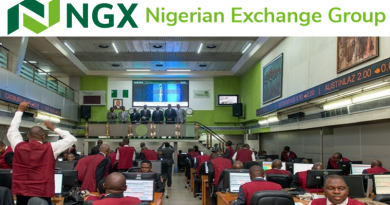Nigeria recorded a 22.3% rise in eCommerce app installs from 2022 to 2023 on iOS.
Nigeria recorded a 22.3% rise in total eCommerce app installs from Q1 2022 to Q1 2023 on iOS.. AppsFlyer today released the 2023 edition of its State of eCommerce App Marketing report, which provides an in-depth look at key global industry trends to help retail marketers build a mobile-first experience that drives engagement and sales in the second half of 2023, particularly during the peak holiday season.
While retail marketers continue to operate in an uncertain economic backdrop, the Q4 Christmas shopping season of last year, which witnessed more in-app purchases by consumers than the Q4 of 2021, should provide a ray of light. Consumer spending on shopping apps increased 37% in Q4 2022 compared to Q3 2022, a 30% increase over the same period in 2021. In the peak shopping month of November 2022, retail applications produced 10% more revenue than in November 2021. Furthermore, in-app purchases (IAP) remained high throughout the holiday season, indicating that retailers focused on attracting customers with early discounts and continuous holiday season incentives, resulting in shoppers returning to their favorite shopping apps and making repeated purchases, which drove shopping’s economic impact.
Last year’s Black Friday in South Africa demonstrated its prowess in terms of app installs, with iOS installs increasing by more than 30% and Android installs increasing by more than 15% on this day, compared to the daily average in November, highlighting the importance of this period in particular for eCommerce apps,” said Netta Lev Sadeh, Managing Director EMEA SANI, AppsFlyer. “It is critical for app marketers to start planning for this year’s Black Friday now if they want to capitalize on this vibrant shopping period.” Disruptive user acquisition tactics could be crucial in the months running up to Black Friday, and if done successfully, could be the deciding factor in whether app installs grow or drop.”
Key Africa findings from the State of eCommerce in 2023:
From Q1 2022 to Q1 2023, Nigeria saw a 22.3% increase in overall eCommerce app installs on iOS.
In South Africa, eCommerce app installs on iOS devices increased by 81.5% from Q1 2022 to Q1 2023, outpacing the 15% increase recorded on Android smartphones during the same period.
Surprisingly, there was a 54% increase in overall eCommerce app installs on Android devices in Algeria between Q1 2022 and Q1 2023.
In South Africa, non-organic installs rose by more than 60% during the summer of 2022.- South Africa’s remarketing share peaked at 76% in April 2022, but by February 2023, had dropped down to 65%.
- South Africa’s share of paying users peaked in November 2022, a testament to the month of Black Friday. November truly carries more gold in its pocket than any other month for eCommerce apps. The period from the 25th to the 27th of November emerges as the prime time for app installs in the region, driven by the frenzy of Black Friday. This period registers a marked increase across all platforms, with iOS numbers outpacing Android. On November 25th alone, Android installs rose by 30 % over any other day in the month in South Africa, while iOS saw a steeper climb of 78%.
South Africa’s share of paying users peaked in November 2022, owing to Black Friday. November certainly holds more gold than any other month for eCommerce apps. The period from November 25th to November 27th appears as the best time for app installs in the region, driven by the Black Friday excitement. This time period saw a significant increase across all platforms, with iOS numbers exceeding Android. In South Africa, Android installs increased by 30% on November 25th compared to any other day in the month, while iOS witnessed a 78% increase.
Key Global Insights from the State of eCommerce in 2023:
In-app consumer spending rose 81% on Black Friday 2022 compared to the daily average in November, with Android spending up 61%.
eCommerce marketers spent $4.9 billion on acquiring app users globally in 2022, with the economic slump resulting in a 25% decrease in spending in H2 2022.
Apple iOS apps had an 85% larger share of paying customers than Android apps, and November conversion rates were 15% higher than the monthly average on both platforms.
When comparing Q1 of 2023 to Q1 of 2022, the cost of media in the eCommerce vertical has decreased by 30% year on year.
Marketers’ client acquisition costs, as measured by Cost Per App Install (CPIs), peaked in November 2022 and fell 30% when comparing Q1 2023 to Q1 2022 – particularly, 33% on iOS and 11% on Android.
Marketing-driven non-organic installs (NOIs) grew 19% on iOS due to a decline in CPIs and higher measurement confidence in the post-iOS 14.5 app ecosystem.
Marketers are focusing on remarketing because it is still a vital and cost-effective component of the global marketing landscape, with a monthly share of more than 40%.
“The impact of the downturn on ad spend as seen during the first quarter of 2023 has been significant, with marketers cutting budgets, but the success of the 2022 holiday season, even amidst the prevailing financial slowdown worldwide, should instill greater confidence in marketers as they plan for the upcoming holiday season,” said Shani Rosenfelder, Director of Content Strategy & Market Insights, AppsFlyer. “Emotional marketing has more resonance than ever before, so marketers should stay tuned in to their audience’s needs and sentiments in order to connect with them on a deeper level.”
Methodology
The State of eCommerce App Marketing, 2023 Edition from AppsFlyer is an anonymous compilation of proprietary global data from 3.7 billion app installs from 8,500 eCommerce applications and 22 billion remarketing conversions.
“




